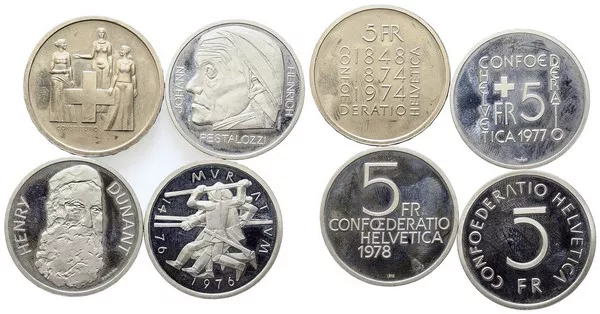In the complex world of global finance, exchange rates play a pivotal role in determining the economic health of nations and influencing international trade. One of the key currency pairs that investors and economists closely monitor is the Swiss Franc (CHF) to United States Dollar (USD) exchange rate. In this comprehensive article, we will delve into the intricacies of the current CHF exchange rate, shedding light on its factors, implications, and the broader economic context.
Understanding the Swiss Franc: A Haven in Turbulent Times
The Swiss Franc, denoted as CHF, stands out in the world of currencies as a symbol of stability and resilience. Switzerland, renowned for its robust economy and prudent fiscal policies, has long been considered a safe haven for investors during times of economic uncertainty. The Swiss Franc’s reputation for reliability has positioned it as one of the leading global currencies.
Factors Influencing the CHF to USD Exchange Rate
Exchange rates are subject to a myriad of factors that collectively determine their value. Understanding these influences is crucial for investors, businesses, and policymakers alike. Let’s explore some key factors that impact the CHF to USD exchange rate.
Economic Indicators:
Economic indicators, such as GDP growth, employment rates, and inflation, have a significant impact on a country’s currency strength. For Switzerland, a nation with a robust and diversified economy, these indicators play a crucial role in shaping the value of the Swiss Franc.
Interest Rates:
Central banks, including the Swiss National Bank (SNB), set interest rates to regulate monetary policy. Changes in interest rates can affect currency values. Investors often seek higher returns, so a higher interest rate in Switzerland compared to the U.S. may attract capital and strengthen the CHF.
Political Stability:
Political stability is a key factor in determining a currency’s value. Switzerland’s longstanding political stability and neutrality contribute to the strength of the Swiss Franc. In contrast, political uncertainty or instability in the U.S. can impact the value of the USD.
Trade Balances:
The balance of trade, reflecting the difference between a country’s exports and imports, influences currency values. Switzerland, with its strong export-oriented economy, often maintains trade surpluses, contributing to the strength of the CHF.
Market Sentiment:
Market sentiment and geopolitical events can have a short-term impact on exchange rates. Uncertainty or crisis situations may lead investors to flock to safe-haven currencies like the Swiss Franc, causing temporary fluctuations in the CHF to USD exchange rate.
The Current CHF to USD Exchange Rate: Unveiling the Numbers
As of the most recent data available, the CHF to USD exchange rate stands at 1.16. This figure represents the amount of U.S. dollars equivalent to one Swiss Franc. It is crucial for market participants to stay updated on these numbers, as they can have far-reaching implications on various sectors of the economy.
Implications for Businesses and Investors
The exchange rate between the Swiss Franc and the U.S. Dollar has profound implications for businesses and investors engaged in cross-border transactions. Here are some key considerations:
Import and Export Dynamics:
Businesses involved in international trade must closely monitor exchange rates. A strong CHF can make Swiss exports more expensive for foreign buyers, potentially impacting export-oriented industries. Conversely, it may benefit businesses importing goods from the U.S.
Investment Opportunities:
Investors looking to diversify their portfolios often consider currency movements. A favorable exchange rate can present investment opportunities, while an unfavorable one may pose risks. Understanding the current CHF to USD exchange rate is crucial for making informed investment decisions.
Tourism and Hospitality:
For the tourism and hospitality industry, exchange rates play a vital role. A weaker CHF may attract more tourists to Switzerland, while a stronger CHF could lead Swiss tourists to favor destinations where their currency has greater purchasing power.
Forecasting the Future: Challenges and Opportunities
While analyzing the current CHF to USD exchange rate provides valuable insights, forecasting future movements is inherently challenging. Economic variables, geopolitical events, and unforeseen circumstances contribute to the complexity of predicting currency trends. However, financial analysts employ various tools and methodologies to assess potential scenarios.
See Also:The Value of 1 US Dollar in Swiss Francs: Insights & Implications
Economic Indicators:
Ongoing monitoring of economic indicators helps analysts gauge the health of both the Swiss and U.S. economies. Changes in GDP growth, employment figures, and inflation rates can provide clues about future currency movements.
Central Bank Policies:
The policies and statements of central banks, particularly the Swiss National Bank and the Federal Reserve, can significantly influence exchange rates. Monetary policy decisions, interest rate adjustments, and communication from central bankers are closely watched by market participants.
Global Economic Trends:
The interconnected nature of the global economy means that events in other regions can impact the CHF to USD exchange rate. Factors such as trade tensions, economic slowdowns, or advancements in technology can have ripple effects on currencies.
Political Developments:
Political events, including elections and geopolitical tensions, can introduce volatility to currency markets. Any shifts in the political landscape in Switzerland or the U.S. may influence investor sentiment and impact the CHF to USD exchange rate.
Conclusion: Navigating the Dynamics of Currency Exchange
In conclusion, the CHF to USD exchange rate is a crucial metric that reflects the economic dynamics between Switzerland and the United States. Investors, businesses, and policymakers must stay vigilant in monitoring these rates, considering the myriad factors that contribute to their fluctuations.
As the global economic landscape continues to evolve, understanding the intricacies of currency exchange becomes paramount. The Swiss Franc’s status as a safe-haven currency adds a layer of complexity to its movements, making it a subject of interest and analysis for financial professionals worldwide.
As we navigate the challenges and opportunities presented by currency markets, staying informed about the current CHF to USD exchange rate empowers individuals and organizations to make sound financial decisions in an ever-changing global economy.
Related Topics:
Current CHF Exchange Rate: What Is CHF in JPY?
Current CHF Exchange Rate: 10000 Swiss Francs to Dollars
Current CHF Exchange Rate: Swiss Francs to Pound Sterling

























